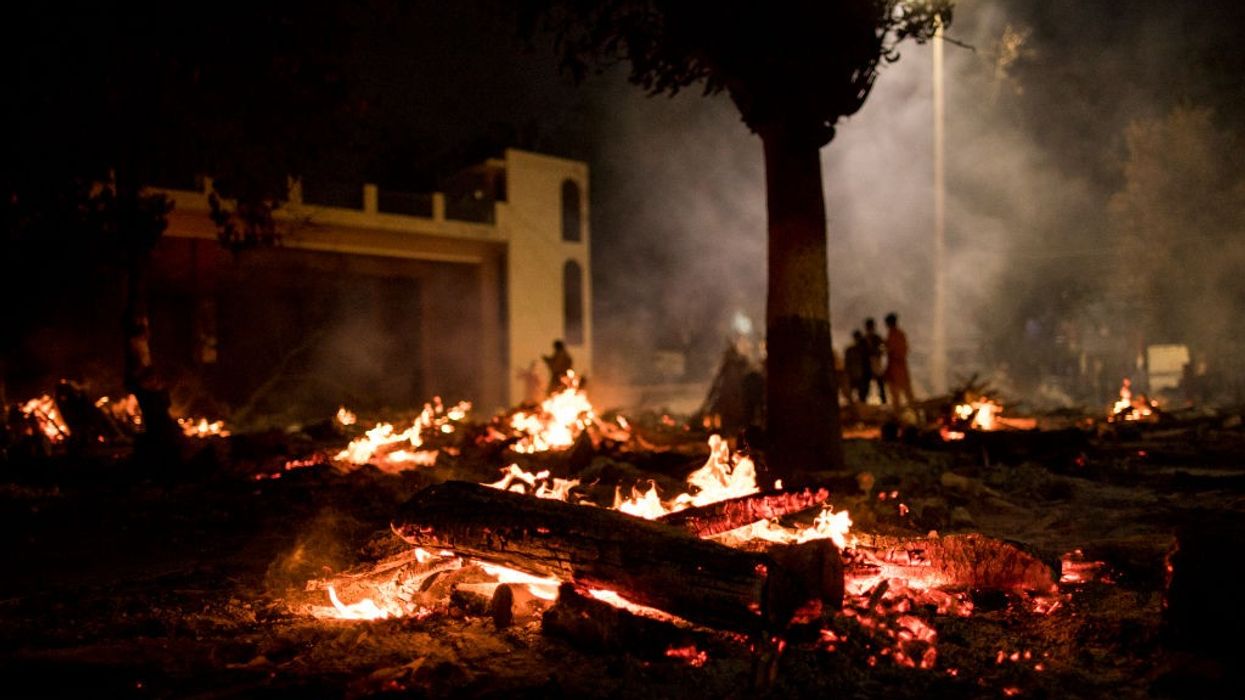INDIA on Friday (30) posted another global record for daily coronavirus infections, pushing worldwide cases past 150 million as a pandemic that has killed almost 3.2 million worldwide continues to wreak devastation.
India recorded another 385,000 cases in the past 24 hours -- a new global record -- and almost 3,500 deaths, according to official data that many experts suspect falls short of the true toll.
Death and infection rates have been rising exponentially throughout April in India, which experts blame in part on mass gatherings.
On Thursday (29), the south Asian nation reported 3,645 deaths over the past 24 hours. The official numbers are widely believed to be far below the reality.
In many Indian cities, hospitals are running out of beds as relatives of the sick jostle for medicines and oxygen cylinders.
"We rushed to multiple hospitals, but were denied admission everywhere," said the son of an 84-year-old woman who died at home this week after a desperate search for a hospital bed and oxygen in Kolkata, capital of West Bengal state.
Compounding India's woes as cases soared has been its failure to get a much-needed vaccine programme off the ground.
Until now, only "frontline" workers like medical staff, people over 45 and those with existing illnesses have been given the AstraZeneca shot or Bharat Biotech's homegrown Covaxin.
As of Saturday (1) jabs will be open to all adults, meaning around 600 million more people will be eligible.
Meanwhile, the World Health Organization issued a stark warning to eager European nations that relaxing Covid measures could spark a "perfect storm" allowing cases to spiral -- as in India.
"It is very important to realise that the situation in India can happen anywhere," said WHO Europe chief Hans Kluge.
The pandemic has claimed at least 3.1 million lives around the world, with India accounting for more than 200,000 fatalities, the worst toll outside the Americas.
The US is the worst-affected country with more than 570,000 deaths, and Brazil reached 400,000 deaths
Global aid
More than 40 countries have committed to sending medical aid to India, with a US Super Galaxy military transporter carrying more than 400 oxygen cylinders, other hospital equipment and nearly one million rapid coronavirus tests arriving in New Delhi on Friday.
The supplies include almost 550 oxygen-generating plants, more than 4,000 oxygen concentrators, 10,000 oxygen cylinders as well as 17 cryogenic tankers.
Hundreds of thousands of doses of Covid-19 treatment drugs as well as raw materials to produce vaccines were also being sent.
The Indian global diaspora has also sprung into action, with a collection of overseas volunteers scrambling to locate desperately-needed supplies for Covid-19 stricken family, friends and strangers back home.
The WHO has said the virus variant feared to be contributing to the catastrophe on the sub-continent has now been found in more than a dozen countries.





